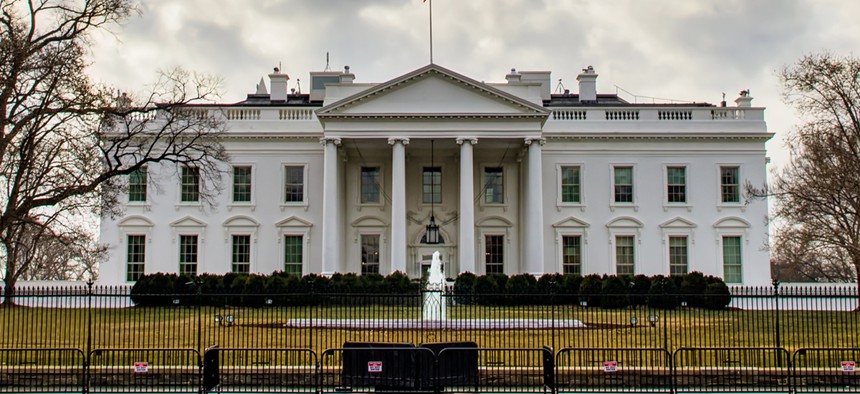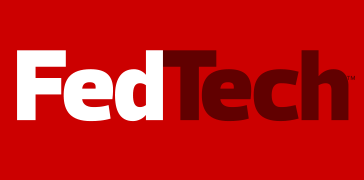sponsor content What's this?
White House Maps Out Vision for IT Modernization Centers of Excellence

Presented by
FedTech

The centers, within the General Services Administration, will begin staffing up this month to start work with the Agriculture Department.
There is now more meat on the bones of the Trump administration's IT modernization plan.
The White House, which last week named Suzette Kent as the federal CIO, thinks that the partnership between the General Services Administration and Agriculture Department on IT modernization will serve as an exemplar of technology transformation, according to Danielle Metz, policy adviser in the White House's Office of Science and Technology Policy.
The GSA is hiring staff this month for its new "Centers of Excellence," a model the administration unveiled in December that will help guide agencies through IT modernization, Metz said on Feb. 7 at the 2018 ServiceNow Federal Forum in Washington, D.C.
USDA will serve as the first agency to use the model and has set aside money and IT talent for the process. Metz said that by demonstrating progress, the partnership will serve as a catalyst for other agencies to follow in the Agriculture Department's footsteps.
White House Encourages Centers of Excellence Model
The CoE model is designed to accelerate IT modernization and help agencies fulfill the recommendations of the White House's IT modernization report, which was released in December.
"Agencies have a fundamental responsibility to modernize their systems," Metz said, adding that industry will be a key partner in doing so and that "agencies are not alone."
The Office of Science and Technology Policy, she said, "will assist in eliminating any barriers that pop up" as agencies undertake modernization efforts. The GSA will obviously play a crucial role as well. Its Technology Transformation Service (TTS) will create the CoE teams around five areas: cloud adoption, IT infrastructure optimization, customer experience, service delivery analytics and contact centers.
The goal of the centers, Metz said, is to accelerate modernization by leveraging private-sector expertise and talent.
The CoEs, which are being driven in part by Joanne Collins Smee, who heads the TTS and is executive director of the COEs, are designed to be reused across agencies for assessment, strategy, planning and acquisition, Metz said.
Agriculture Department Commits to IT Modernization
USDA is gearing up for the modernization push. Last week, Agriculture Secretary Sonny Perdue named Gary Washington to be the agency's permanent CIO, after serving as acting CIO since September.
USDA plans to use the CoE model to improve customer experience through an online services portal and also to ensure that all agency employees have access to a single USDA network.
As has been previously reported, Metz said that USDA will go through a discovery and assessment phase of using the CoE model to determine how best to move forward on modernization. That should take until June. Over the summer, USDA will start implementing its modernization plans. GSA then plans to use the lessons learned through that process to work with other agencies, Metz said.
Why was USDA chosen as the guinea pig for the new model? Metz said that Perdue is "all in on IT modernization" and that he has "contributed funds to make this happen." USDA came prepared with funds set aside and a solid plan for technology upgrades, Metz said. The agency "contributed not just money" but its "best and brightest" IT staffers, she said.
GSA will work with agencies to make sure they are prioritizing funds for modernization, according to Metz. The CoEs will "be able to help them identify what their needs are, what they need to prioritize." She acknowledged that agencies will not be able to "go after everything" that needs to be updated, which is why it will be critical to "target the funds to get the biggest bang for our buck." That includes adoption of cloud and shared services, Metz said.
The goal of the White House report and CoEs is to approach IT modernization in a holistic way, Metz said. "We didn't want to cherry-pick certain things and consider it done, that we have modernized," she said.
Modernization includes network consolidation and ensuring that new tools have proper security controls that are calibrated to each agencies' risk assessments. More broadly, Metz said, the White House wants agencies to make long-term commitments to modernization to ensure that the efforts will not end when the current administration does.
"IT modernization is not an easy thing," Metz said. "It doesn't happen at the snap of a finger. It's an enduring effort."
There is now more meat on the bones of the Trump administration's IT modernization plan.
The White House, which last week named Suzette Kent as the federal CIO, thinks that the partnership between the General Services Administration and Agriculture Department on IT modernization will serve as an exemplar of technology transformation, according to Danielle Metz, policy adviser in the White House's Office of Science and Technology Policy.
The GSA is hiring staff this month for its new "Centers of Excellence," a model the administration unveiled in December that will help guide agencies through IT modernization, Metz said on Feb. 7 at the 2018 ServiceNow Federal Forum in Washington, D.C.
USDA will serve as the first agency to use the model and has set aside money and IT talent for the process. Metz said that by demonstrating progress, the partnership will serve as a catalyst for other agencies to follow in the Agriculture Department's footsteps.
SIGN UP: Get more news from the FedTech newsletter in your inbox every two weeks!
White House Encourages Centers of Excellence Model
The CoE model is designed to accelerate IT modernization and help agencies fulfill the recommendations of the White House's IT modernization report, which was released in December.
"Agencies have a fundamental responsibility to modernize their systems," Metz said, adding that industry will be a key partner in doing so and that "agencies are not alone."
The Office of Science and Technology Policy, she said, "will assist in eliminating any barriers that pop up" as agencies undertake modernization efforts. The GSA will obviously play a crucial role as well. Its Technology Transformation Service (TTS) will create the CoE teams around five areas: cloud adoption, IT infrastructure optimization, customer experience, service delivery analytics and contact centers.
The goal of the centers, Metz said, is to accelerate modernization by leveraging private-sector expertise and talent.
The CoEs, which are being driven in part by Joanne Collins Smee, who heads the TTS and is executive director of the COEs, are designed to be reused across agencies for assessment, strategy, planning and acquisition, Metz said.
Agriculture Department Commits to IT Modernization
USDA is gearing up for the modernization push. Last week, Agriculture Secretary Sonny Perdue named Gary Washington to be the agency's permanent CIO, after serving as acting CIO since September.
USDA plans to use the CoE model to improve customer experience through an online services portal and also to ensure that all agency employees have access to a single USDA network.
As has been previously reported, Metz said that USDA will go through a discovery and assessment phase of using the CoE model to determine how best to move forward on modernization. That should take until June. Over the summer, USDA will start implementing its modernization plans. GSA then plans to use the lessons learned through that process to work with other agencies, Metz said.
Why was USDA chosen as the guinea pig for the new model? Metz said that Perdue is "all in on IT modernization" and that he has "contributed funds to make this happen." USDA came prepared with funds set aside and a solid plan for technology upgrades, Metz said. The agency "contributed not just money" but its "best and brightest" IT staffers, she said.
GSA will work with agencies to make sure they are prioritizing funds for modernization, according to Metz. The CoEs will "be able to help them identify what their needs are, what they need to prioritize." She acknowledged that agencies will not be able to "go after everything" that needs to be updated, which is why it will be critical to "target the funds to get the biggest bang for our buck." That includes adoption of cloud and shared services, Metz said.
The goal of the White House report and CoEs is to approach IT modernization in a holistic way, Metz said. "We didn't want to cherry-pick certain things and consider it done, that we have modernized," she said.
Modernization includes network consolidation and ensuring that new tools have proper security controls that are calibrated to each agencies' risk assessments. More broadly, Metz said, the White House wants agencies to make long-term commitments to modernization to ensure that the efforts will not end when the current administration does.
"IT modernization is not an easy thing," Metz said. "It doesn't happen at the snap of a finger. It's an enduring effort."
This content is made possible by FedTech. The editorial staff of Nextgov was not involved in its preparation.
NEXT STORY: HHS Sets Its Sights on IT Modernization





